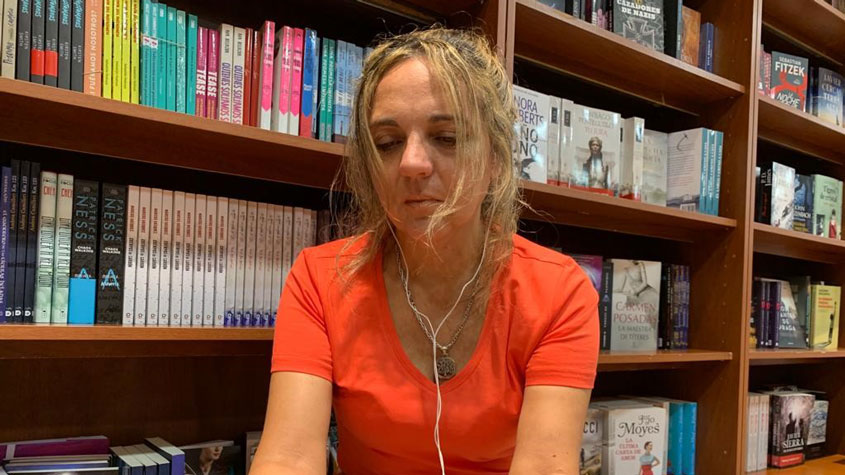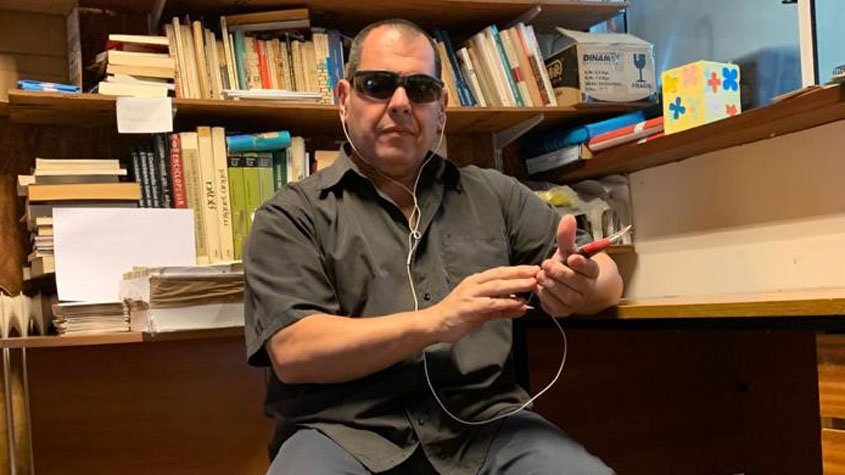Accessible Books Consortium: 500,000 Titles Now Available for Cross-Border Exchange
March 31, 2020
The Accessible Books Consortium’s (ABC) Global Book Service has passed a major milestone, with half a million accessible works now available for cross-border, clearance-free exchange to benefit people who are blind, visually impaired or otherwise print disabled.
WIPO’s ABC Global Book Service is an online catalogue for the international exchange of accessible books by participating libraries for the blind, which share items in their collections and distribute accessible books obtained through ABC to their patrons who are print disabled.
The half-million mark was crossed with the recent integration in the ABC catalogue of the collections of libraries for the blind from Croatia, Latvia, Portugal, Spain and the United Kingdom, each of which have implemented into national law the provisions of WIPO’s Marrakesh Treaty to Facilitate Access to Published Works for Persons Who Are Blind, Visually Impaired or Otherwise Print Disabled.
Under the terms of the Marrakesh Treaty, books in accessible formats – such as Braille, e-text, audio or large print – may be produced and exchanged across borders without the need to request permission from the copyright owner. The ABC and its Global Book Service support the implementation of the objectives of the Marrakesh Treaty at a practical level.
Thanks to ABC and the Marrakesh Treaty, a half million accessible texts in 76 languages are now more-easily within reach of people living with print disabilities, giving them greater access to knowledge and entertainment.
I hope this milestone encourages wider membership of both the Accessible Books Consortium and the Marrakesh Treaty, which is WIPO’s fastest growing Treaty and has already begun to make a difference in the lives of people living with print disabilities in the 90-plus countries it covers.
WIPO Director General Francis Gurry

In addition to hitting this major milestone, ABC is also pleased to launch its new logo in the form of an open book, symbolizing that literature, knowledge and information should be accessible to all.
First exchanges
Following the integration of the Spanish National Organization of the Blind (ONCE), which has the leading collection of Spanish-language titles in the world, an exchange of accessible texts was made via the ABC Global Book Service to a participating library for the blind from Uruguay.
About the Accessible Books Consortium
ABC is a WIPO-led public–private partnership that brings together all of the key players – organizations representing people who are blind, visually impaired or otherwise print-disabled, authors, publishers, collective management organizations, libraries and other authorized entities, as well as standards bodies. ABC was established in June 2014 to implement the goals of the Marrakesh Treaty. Through an effective international alliance of relevant state and non-state actors, ABC seeks to increase, and distribute, the number of books worldwide in accessible formats - such as Braille, audio, e-text and large print.
ABC works in three areas, namely:
- Capacity building – training and funding is provided by ABC in developing and least developed countries for the production of books in accessible formats.
- ABC Global Book Service – a global library catalogue of accessible formats that enables participating libraries for the blind from around the world to share items in their collections and distribute accessible titles obtained through ABC to their patrons.
- Accessible publishing – the promotion of accessible book production techniques within the publishing industry so that e-books are usable by both sighted people and those with print disabilities.
For further information, please visit www.AccessibleBooksConsortium.org
About WIPO
The World Intellectual Property Organization (WIPO) is the global forum for intellectual property policy, services, information and cooperation. A specialized agency of the United Nations, WIPO assists its 193 member states in developing a balanced international intellectual property (IP) legal framework to meet society's evolving needs. It provides business services for obtaining IP rights in multiple countries and resolving disputes. It delivers capacity-building programs to help developing countries benefit from using IP. And it provides free access to unique knowledge banks of IP information.



